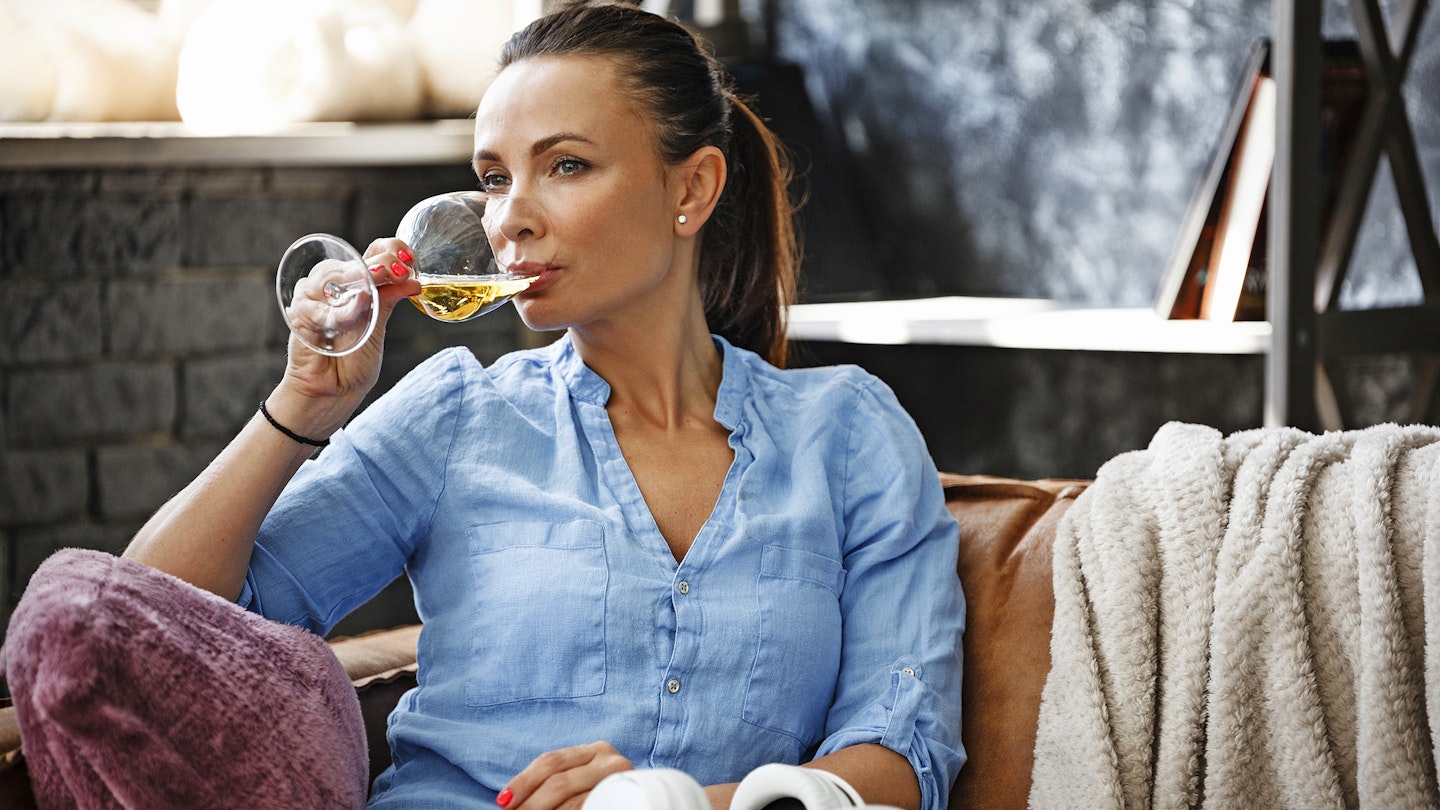Lockdown has seen many of us drinking more, and risking our health in the process. Here’s how to cut down
You look at the clock and wonder — is 6pm too early to have a glass of wine?
Sound familiar? If so, you’re not alone.
According to a survey by alcohol and mental health charity, We Are With You, 1.9 million adults aged over 50 say lockdown restrictions led them to start drinking earlier in the day, with one in two drinking at a level that could cause health problems, now or in the future.
Andrew Horne, Executive Director for Scotland at We Are With You, says: ‘Over 55s are now drinking more than any other age group. Research shows that consistently drinking too much alcohol increases our risk for stroke, heart disease, liver disease, breast cancer and mental health problems, not to mention a worsened ability to fight infections.
‘By contrast, when we cut down on alcohol, we lose weight and our sleep improves, as does our mood. We have more energy, better-looking skin and improved mental performance.
‘If we all make healthier choices about our alcohol use now, we can live longer and healthier lives.’
Here are some tips to help you cut back…
1. Keep a drink diary
Start keeping a record of how much you’re drinking, including what time you drink, where you are and what you’re thinking when you have a drink. Understanding your drinking habits more clearly will help you confront them and have greater control in changing them.
2. Make a plan
We often plan our meals for the week, so why not our alcohol? By making a conscious plan, then buying limited alcohol for that week and scheduling in drink-free days, we’re more likely to stick to it.
3. Consider how you feel before a drink
Think about why you’re having a drink. Is it to relieve work stress? Are you bored, feeling lonely or just wanting a treat?
Once we know why we’re drinking, it’s easier to work out what we can do instead — for example, going for a run to relieve stress or chatting on the phone when we’re feeling lonely.
4. Consider how you feel after
It’s also important to reflect on how drinking makes you feel afterwards. For example, having a few drinks or going for a run might both help you to de-stress in the moment, but while one leaves you feeling refreshed the next morning, the other might leave you feeling sluggish and stressed.
5. Make soft drinks more exciting
Make soft drinks feel like more of a treat by using a nice glass, mixing different types of juice and adding ice or slices of fruit.
6. Shrink your drink
We tend to drink much larger measures at home than we would in a pub. But remember, if you’re drinking from a 250ml glass, that’s actually a third of a bottle!
Instead, try using smaller glasses to keep measures down or buy lower-strength alcohol.
7. Consider pace
Instead of quickly knocking back your drink, look at the time and make sure that one drink lasts for a whole hour.
By savouring your drinks, you’ll find that you drink less and enjoy them more.
8. Make a budget
Work out your budget for alcohol each week and avoid 3-for-2 deals. This will help you to be mindful of the financial implications of drinking too much, and discourage you from buying more than you need.
9. Consider the calories
You wouldn’t eat three jam doughnuts in a row without considering the impact on your waistline, but there are around the same calories in a 250ml glass of red wine as there are in a doughnut. Keep this in mind if you’re drinking a lot and want to lose weight.
10. Get support
If you’re worried, about your own drinking or a loved one’s, get professional help. Drinking in excess is nearly always a symptom of something else, whether that’s boredom or stress, or to anaesthetise pain, ease anxiety or forget loneliness.
We’re all human and trying to cope with life as best we can. The most important thing is to know that there’s no shame in seeking help or advice.
If you’re over 50 and have concerns about a loved one’s drinking or your own, contact the free We Are With You helpline on: 0808 801 0750 or visit wearewithyou.org.uk
Edited by Stephanie May
